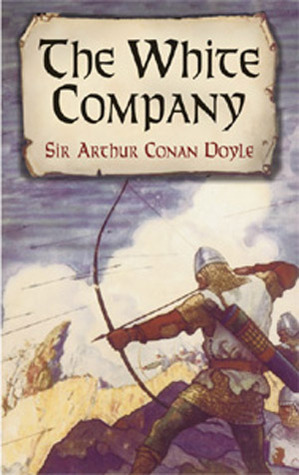
When I read this book, I really thought it could be made into a tv show and then movies. The beginning of the book is written in small scenes, Alleyne has just left the monastery and has entered the world. Observing the different aspects of life, he recognizes the harshness and beauty of life all around him, but still colors everything he sees with his monastic upbringing. Each scene is a small story, you get Alleyne's view (and eventually that of his companions); it is left to us as the reader to determine which view is correct. TV show wise, each scene would take around 20 to 40 minutes.
The book makes a roughly linear progression from small scenes to longer stories as it progresses. Even the longest stories, which span multiple chapters, could probably fit in a movie length time budget. I will stop prattling about the episodic nature of this book, it was just a observation.
Fundamentally, this book is just a good adventure story. A (monastery) youth is let out on the world. He sees everything for the first time, life is new to him. We observe a change in him as his monastery upbringing confronts the base reality of life. Thanks to his companions, he also begins to question the sanctity of being sinless by removing oneself from sin. A man who removes himself from the world may be sinless, but by his actions, he has removed himself from the world, and thus may not improve it. Lots of fun things to think about there.
Then there is the chivalry. A difficult concept to our (well my) western sensibilities. The thought that there was honor to be gained by fighting, by dying, by committing yourself and your men to war is a ... well... for lack of a better word, disturbing idea. Assuming all present agreed to it, and all served voluntary, I suppose there is no evil in groups of people coming together to do war on each other. In this book, in this world, fighting was done by agreement of all present (with the exception of the jacks). Still, you cannot help but think to yourself , "Wouldn't Nigel's time have been better spent guiding the growth of his kingdom, rather than engaging in pointless wars?" I also often thought about the fact that the royalty was of course going to be ransomed if captured, while a ordinary soldiers is probably best off running for his (literally) worthless life. Kind of makes the incentive system for this stuff a little lopsided doesn't it? Chivalry is almost a religion in itself, you take it on faith (or group consensus) that there is this concept of honor to be gained through personal combat and war. I suppose if everyone believe it, then that makes it true? I mean, it is nothing but a social construct, and if we all agree upon it as a society, is it not so?
Anyway, this review/commentary/whatever has become too long. This is a fine book, you should give it a read. I think I might have enjoyed it even more had I read it in my early teens, but even as an adult, it held my attention throughout. It does not have a long sweeping story, choosing instead to focus on one distinct scene at a time. This allows most scenes to be read, consumed and reflected on, very similar to a parable.
